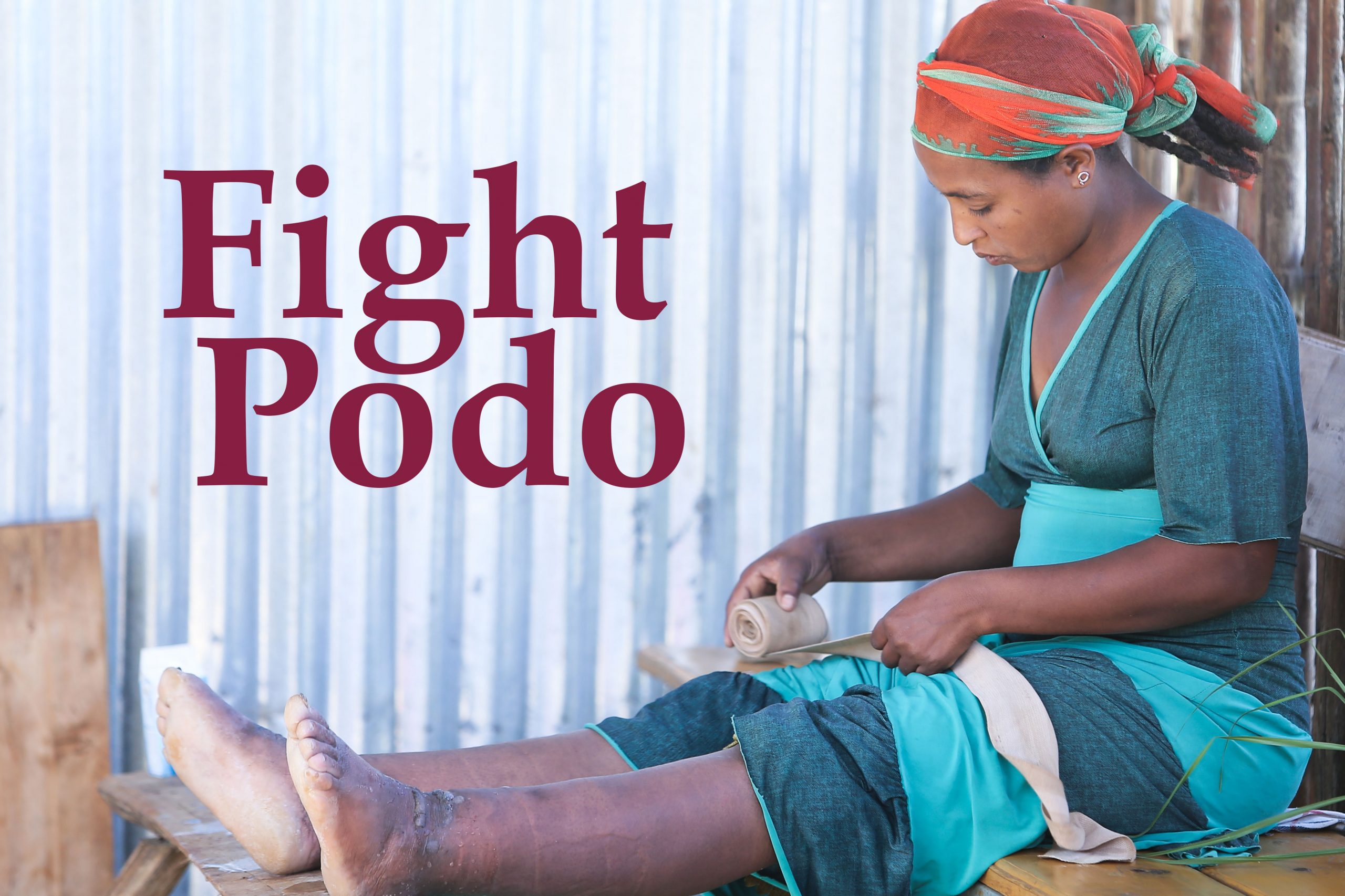Tackling Podoconiosis
Imagine your legs, ankles, and feet being so swollen that it causes your lower extremities to become heavier than usual.
Now, imagine being a farmer who has to walk each day with enlarged lower extremities.
You can’t imagine it, can you?
Unfortunately, this situation is the reality for millions of people throughout Ethiopia who are affected with podoconiosis or podo for short.
Podo, a neglected tropical disease caused by long exposure of bare feet to silicate-rich soil, affects more than 1 million people in Ethiopia.
As podo progresses throughout ones body, lower extremities become more and more swollen, causing an itchy and burning sensation.
While not contagious, podo comes with a severe social stigma. Affected individuals are typically barred from attending school, ostracised from social and religious events, and have difficulty finding marriage.
Podo not only can be prevented by wearing shoes and socks but with inexpensive treatments including compression bandages and daily washing with soap, we can eliminate podo.
Your Gifts at Work (2010-2017)

What Can We Do with Your Gifts?




How is IOCC Tackling Podo?
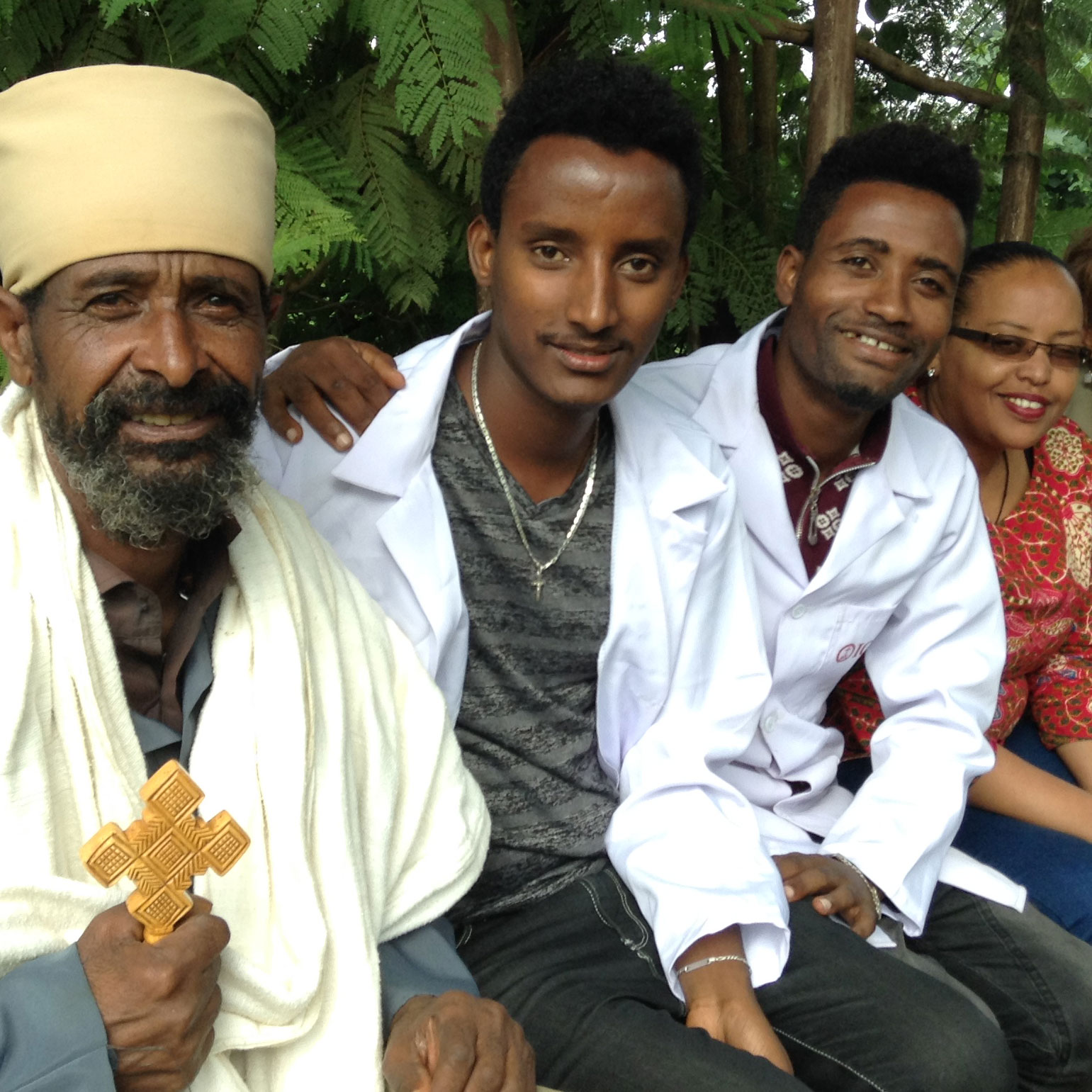
IOCC recently wrapped up a distribution of 80,300 pairs of shoes to schoolchildren, combined with hygiene education and the formation of “Stop Podo” clubs in schools.
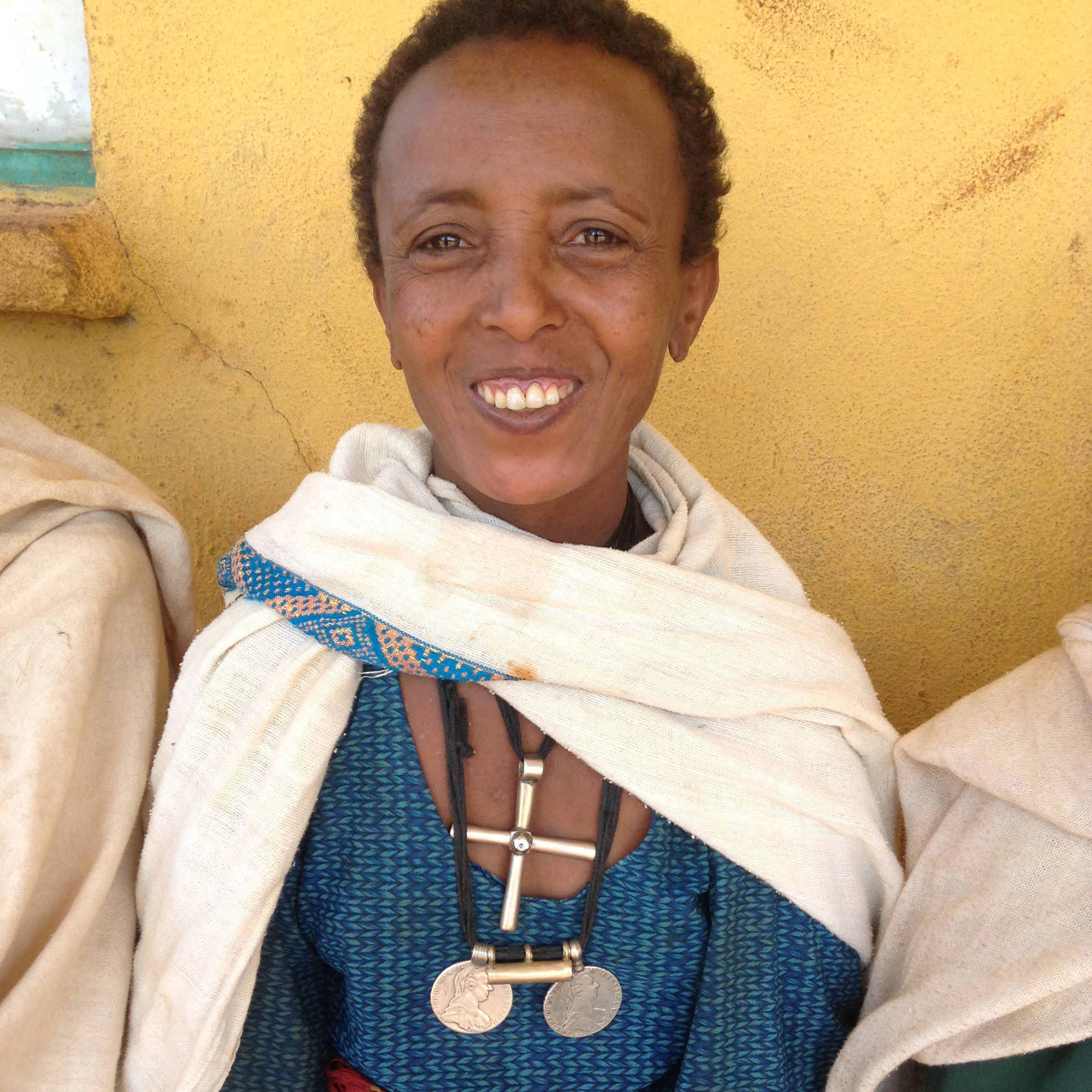
“When my condition gets better, I want to show as many people as possible that this disease is treatable,” said Deberie.Deberie, 38, has been living with incredible pain
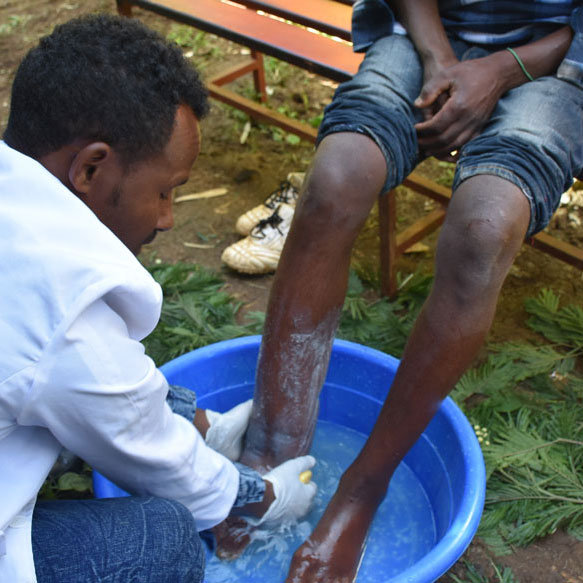
When you need to reach entire communities, where do you start? For IOCC, it’s training people who can become ambassadors: religious leaders, educators, volunteers.
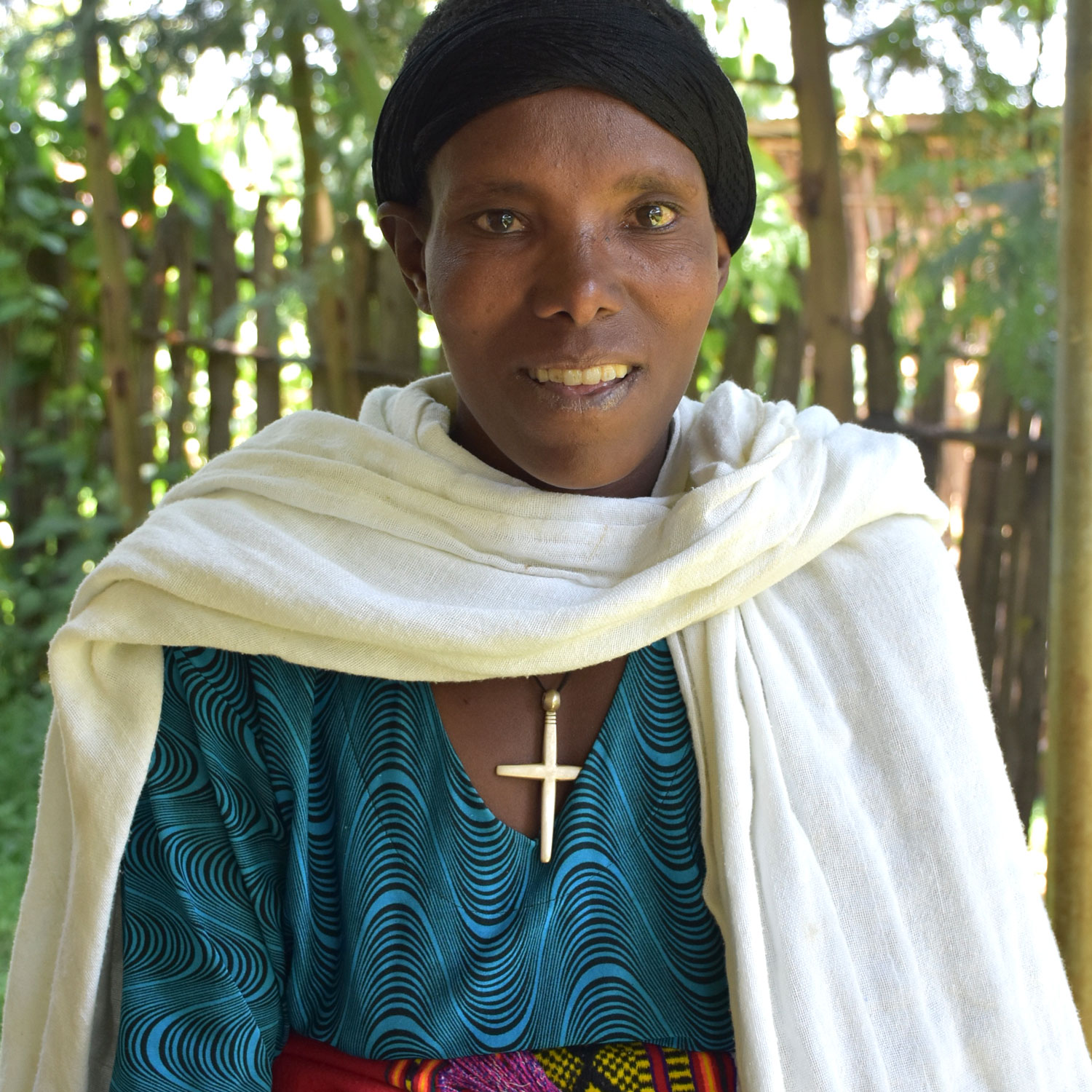
When Enatnesh, a farmer, arrived at an IOCC clinic in Ethiopia, she was in terrible pain. Her badly swollen left leg meant she was unable to work.
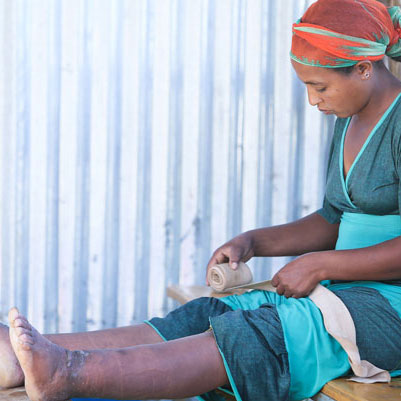
We're on a mission to help stop podoconiosis. And here's how we're going to do that.IOCC is creating a ripple effect with both short-term and
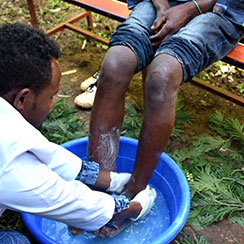
When you need to reach an entire community, where do you start?
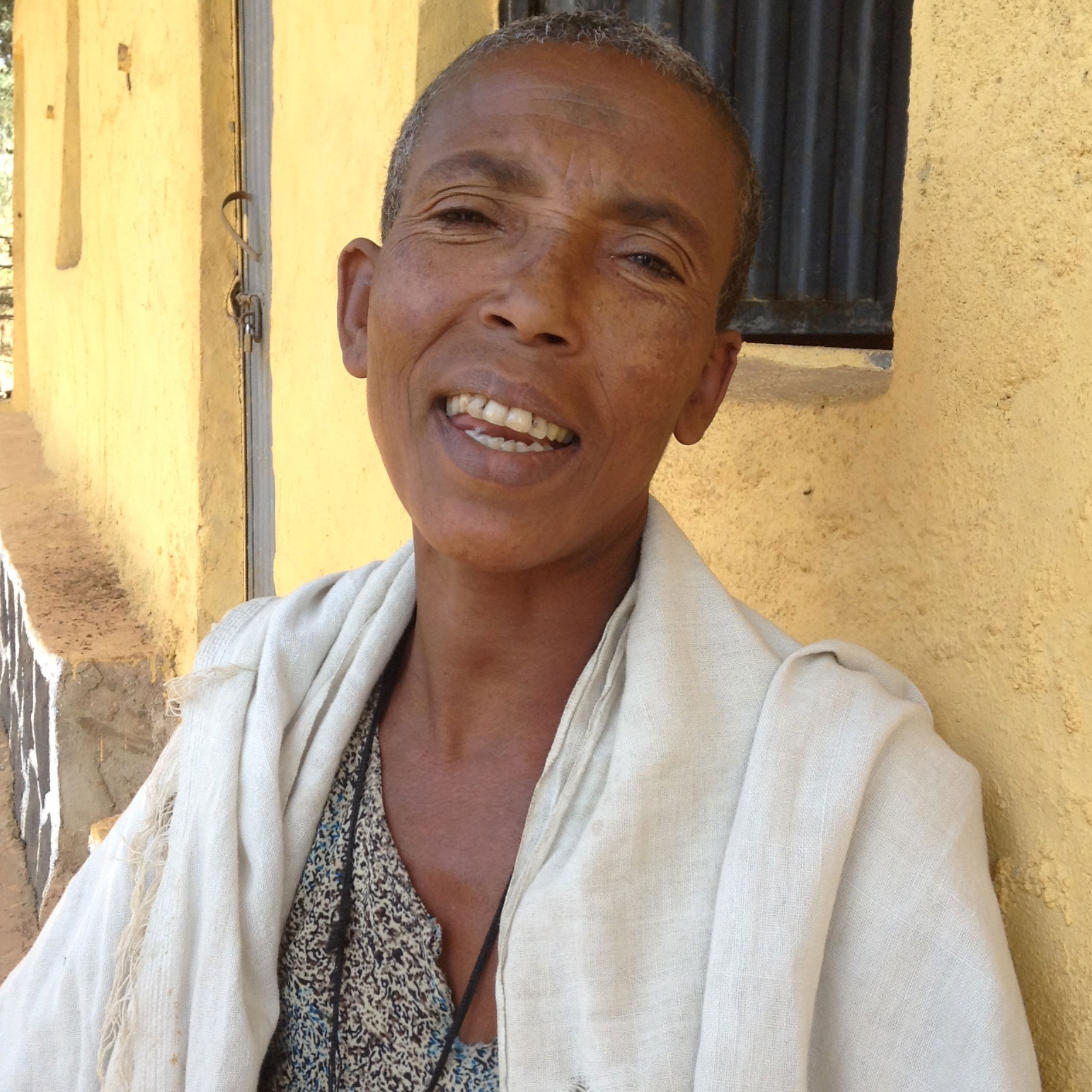
“My kids don't want me undertaking any more community work.... But how can I do that when I know there are so many people that need to learn about the treatment and prevention of this disease?”
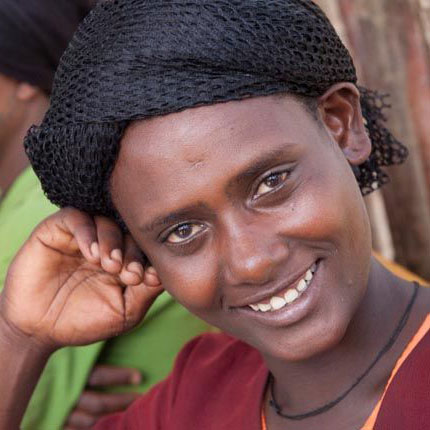
When Amele was 16, she noticed that her feet began swelling. The skin on her legs and feet started to itch and crack, and though she thought it would stop eventually, it didn’t. Her family ...
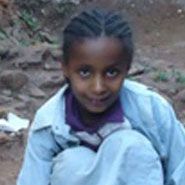
IOCC met Samirawit in 2013, when she was 10 and living with her grandmother in Debre Markos. She received her first pair of shoes through an IOCC project to raise awareness ...

Can you imagine living with pain so strong it leaves you unable to move? Kemel can. Kemel has been living with ...


